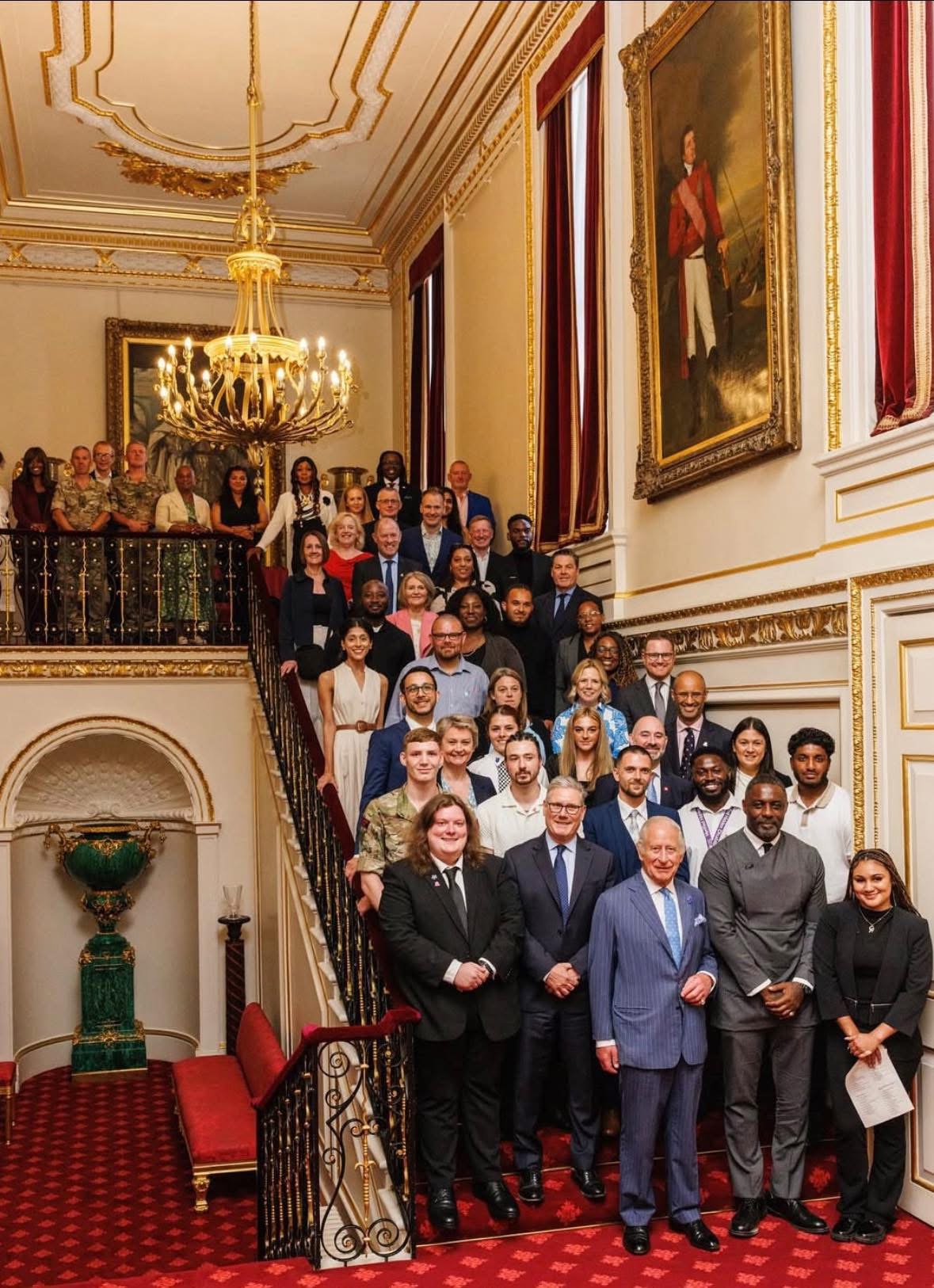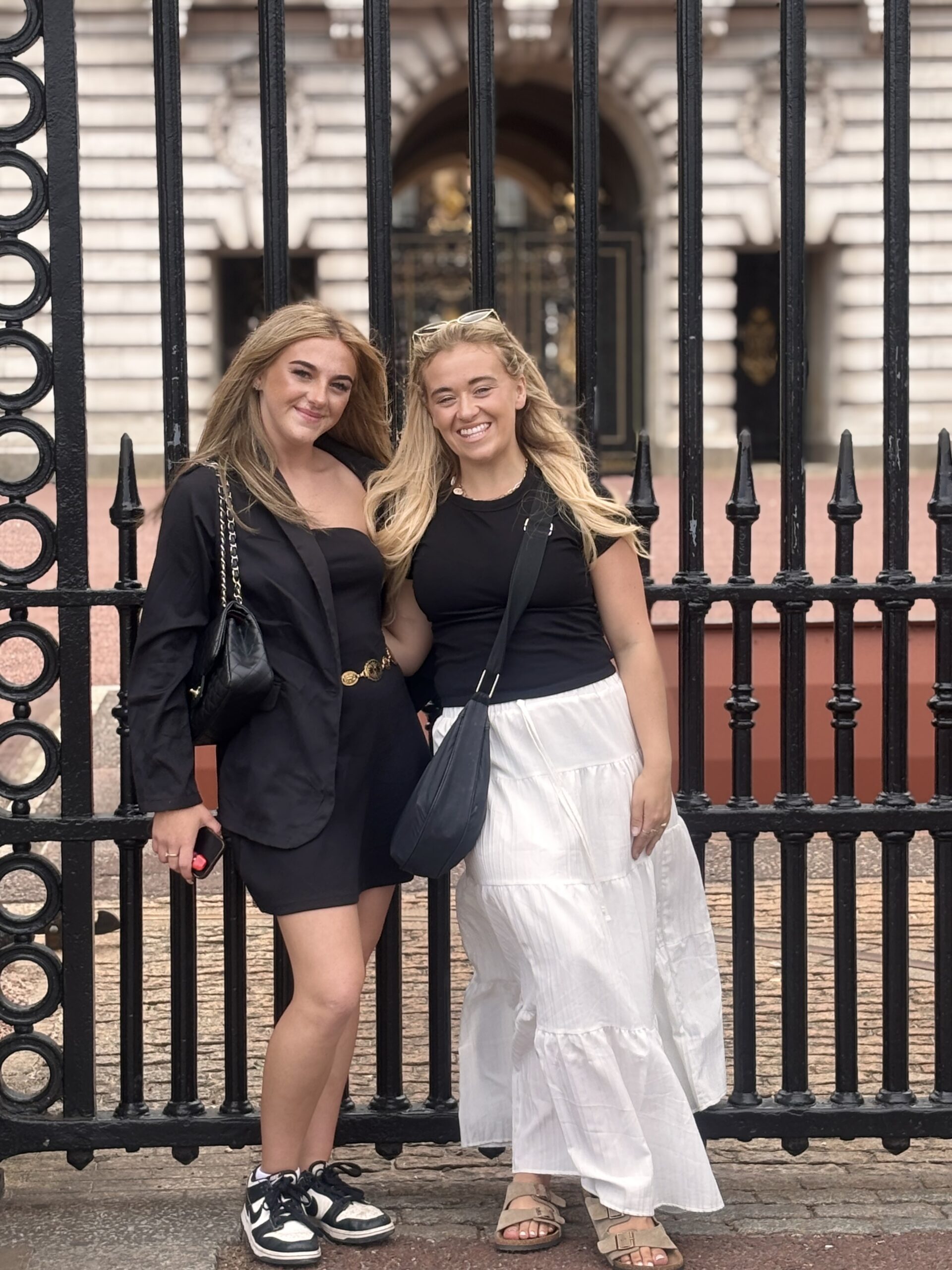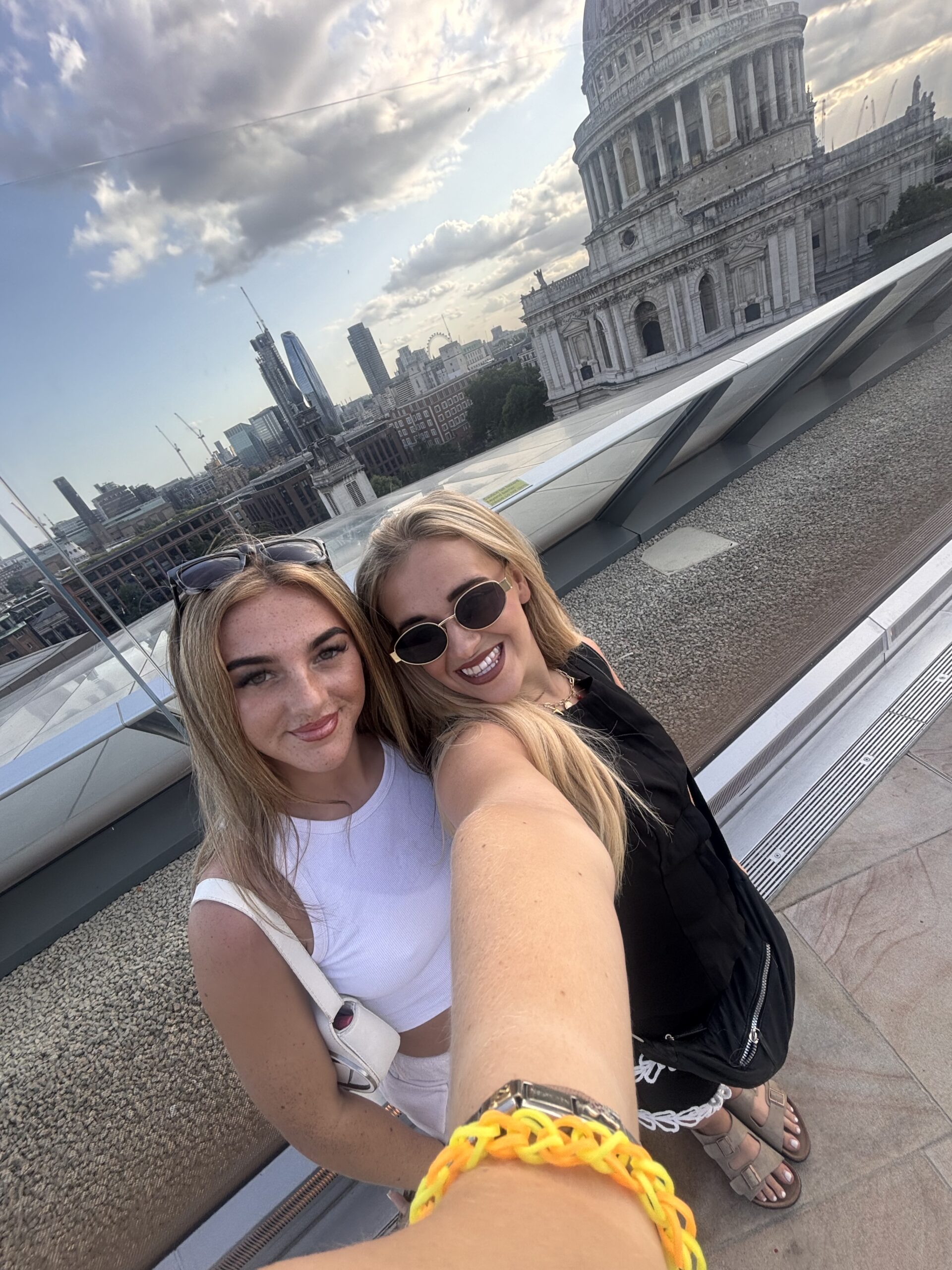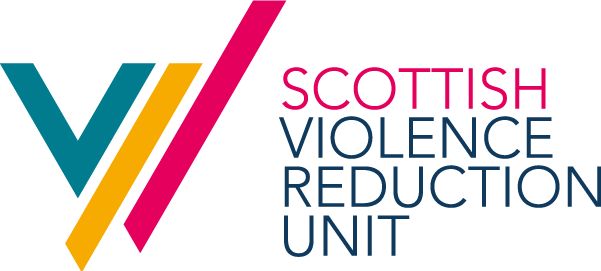In July, the SVRU were invited to attend a Youth Opportunity Summit at St James’s Palace discussing violence impacting young people. The event, hosted by His Majesty the King, brought together youth organisations, frontline workers, the Prime Minister and actor Idris Elba amongst many others.

Jimmy Paul, Head of the SVRU, invited Sky from the Clued Up organisation in Fife to join him at the roundtable discussions.
An ongoing SVRU place-based project in Fife has seen Project Manager Scott McEwen working alongside Clued Up as part of a group bringing together education, policing, social work, third sector organisations and communities to look at reducing vulnerability for young people in the area.
Sky was accompanied by Clued Up Youth Worker Abbey Taylor on the visit to London in July.
Scott said: “We couldn’t operate effectively in our place-based work without the quality of relationships enjoyed by Abbey, Sky and the other fantastic people forming and supporting our work in the community.
“It’s a relational wealth and depth they have that permits us to engage with those most in need to be the very best version of themselves.”
Sky and Abbey offered their reflections on the event.
Sky
What did it mean for you to be involved in the discussions?
It meant the world to me – it felt like my voice actually mattered. After everything I’ve been through it was empowering to sit in a room with people who have real influence and be able to share my story and ideas. It reminded me how far I’ve come and showed me I have something valuable to offer.
I don’t think 13-year-old Sky would’ve believed me if I told her how special and important she would feel standing in that room.
I honestly don’t think I’d be where I am today without Clued Up, so it meant a lot to be there representing them. Clued Up might be a small local charity, but the impact they have is huge. They know their community and their young people inside and out. I’m proud to still be part of Clued Up all these years later, because their support really does change lives.
What do you hope the summit can achieve?
I hope the summit leads to real change, not just talk. I want decision-makers to understand that support like I received can completely change the direction of a young person’s life. We need more funding for grassroots services, more education around addiction and mental health, and more spaces where young people feel safe to speak and be themselves.

I also hope the event highlights how important it is to include smaller charities—especially ones that are fully rooted in their communities. Clued Up might not be a big national organisation, but the relationships they build with young people in Fife are life-saving. That kind of deep, personal support is what works.
How important is it to listen to the voice of young people at events like this?
It’s absolutely essential. You can’t create solutions for young people without including them. We live the realities that decisions are being made about. Listening to us isn’t just a nice thing to do – it’s the only way to make things better.
Sometimes, these events only hear from the same kinds of young people—those who are already confident, or regularly involved in groups. It can end up being a bit biased and not fully representative. What’s powerful for me is that I get to be a voice for young people who are often harder to reach—or, more accurately, easier to ignore. The ones who don’t show up to meetings or feel safe speaking in a group, but whose experiences are just as valid and important. I sometimes feel like they can be more at risk of violence too, so really important the voices of the underrepresented are listened too.
Abbey
How important is it for Clued Up to be a part of events like this?
Clued Up is a small, local charity that supports young people in Fife who are impacted by substance use. Because we’re rooted in the community and take a relationship-based approach, we really know our young people—not just what they’ve experienced, but who they are and what they’re capable of. That depth of connection makes a huge difference, but it also means we can sometimes be underrepresented in national conversations compared to larger organisations.
When Sky was at the summit, you could see the values she’s soaked up from Clued Up pouring out of her—honesty, empathy, courage, and a deep understanding of what young people go through. She represented herself with such strength, but also carried our service and the voices of others with her. She’s not only supported Clued Up in a huge way over the years—through volunteering, peer research, public speaking—she’s also taught us a lot in return. We’re so proud of her and it’s been a privilege to be part of her story.
Do we need to listen more to young people when it comes to discussions on violence?
Absolutely—young people must be at the centre of these conversations. Far too often, the people most affected by violence and its root causes—poverty, trauma, addiction, lack of opportunity—are the ones whose voices go unheard. We need to stop making assumptions about young people and start listening to them.
We work with young people who have lived experience of incredibly complex challenges. These aren’t just statistics or case files—they’re real lives shaped by systems that often fail to meet their needs. When a young person talks about what led them to addiction, or how violence has affected their mental health or relationships, they are offering insight that no textbook or training course could ever fully provide.
What makes Clued Up different is our relationship-based approach. We spend time building trust and walking alongside young people through every high and low. That gives them space to reflect, grow, and find the courage to speak out—not just for themselves, but for others too. Young people like Sky, who have been through the system, through trauma, through addiction and homelessness—they bring a truth that professionals and policymakers need to hear.
Lived experience is not just valid—it’s vital. It helps shape services that actually work, and it challenges the idea that young people are the problem, when in reality they are often the ones holding communities together in the face of neglect. The more we centre lived experience, the more honest and effective our solutions will be.
What do you hope can happen next?

I hope this event leads to real, lasting change—not just in policy, but in how we work with and value young people across Scotland. Nationally, I would love to see more recognition and investment in smaller, community-rooted charities like Clued Up. We might not have the biggest reach, but our impact runs deep because we’re embedded in the lives and communities we serve. We’re already doing the early intervention and preventative work that national strategies often aim for—but from a grassroots level, built on trust, time, and meaningful relationships.
In Fife, we need to prioritise early intervention, especially for young people affected by substance use, trauma, and poverty. That means having accessible services available at the right time—when a young person is most in need or most at risk—not just when they hit crisis. It also means meeting young people where they’re at, both emotionally and physically.
With the right support, we’ve seen young people move from crisis to college, from addiction to advocacy, from hopelessness to hope. Sky is living proof of what’s possible when we can get it right for a young person—and she’s not the exception. There are so many young people like her, just waiting for someone to show up, believe in them, and stick around long enough to make a difference. That’s what we do—and that’s what we hope to see more of across Scotland and Fife in the future.
